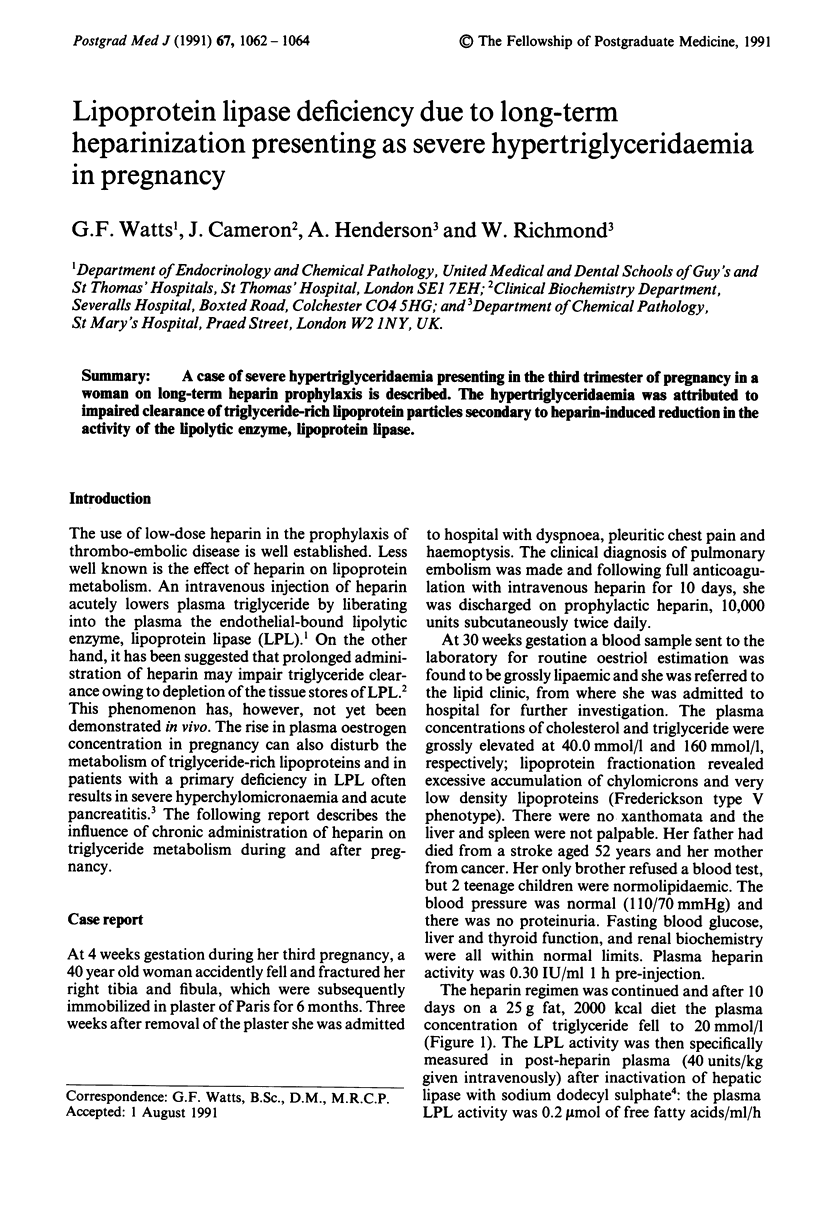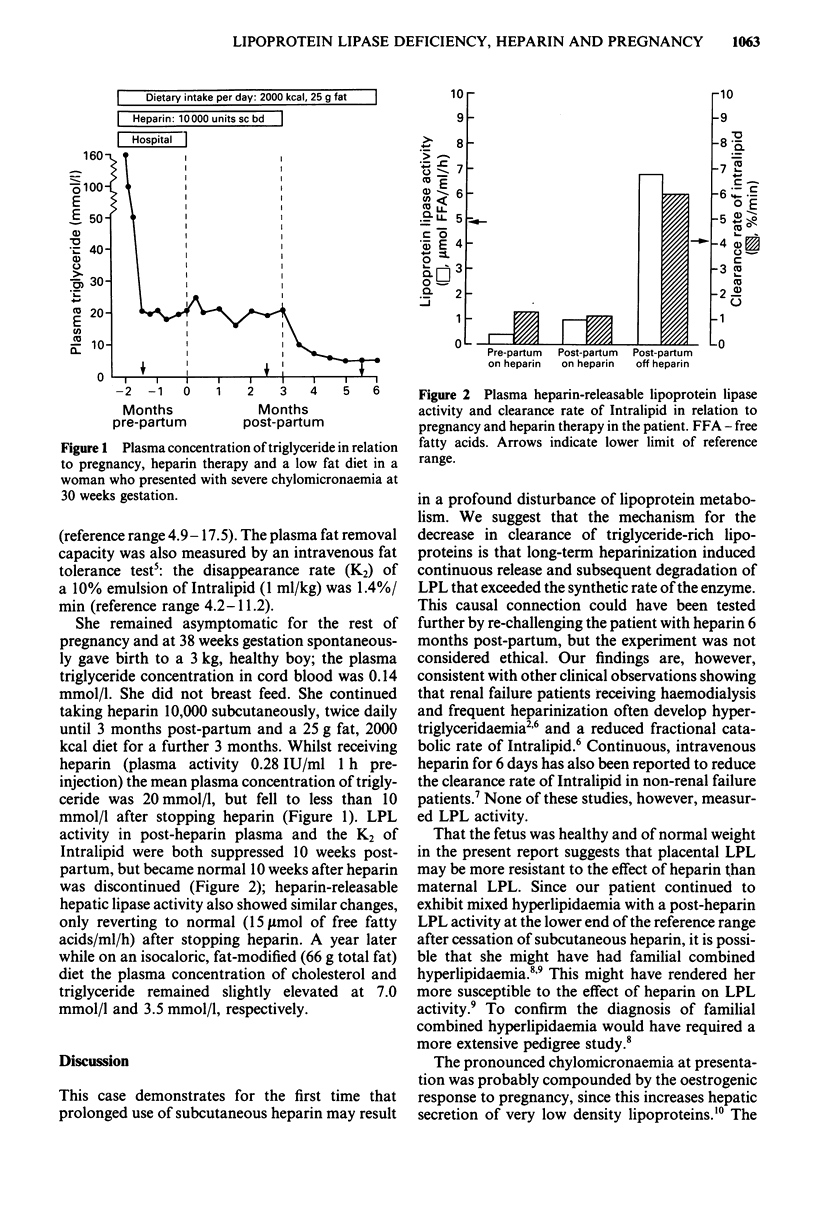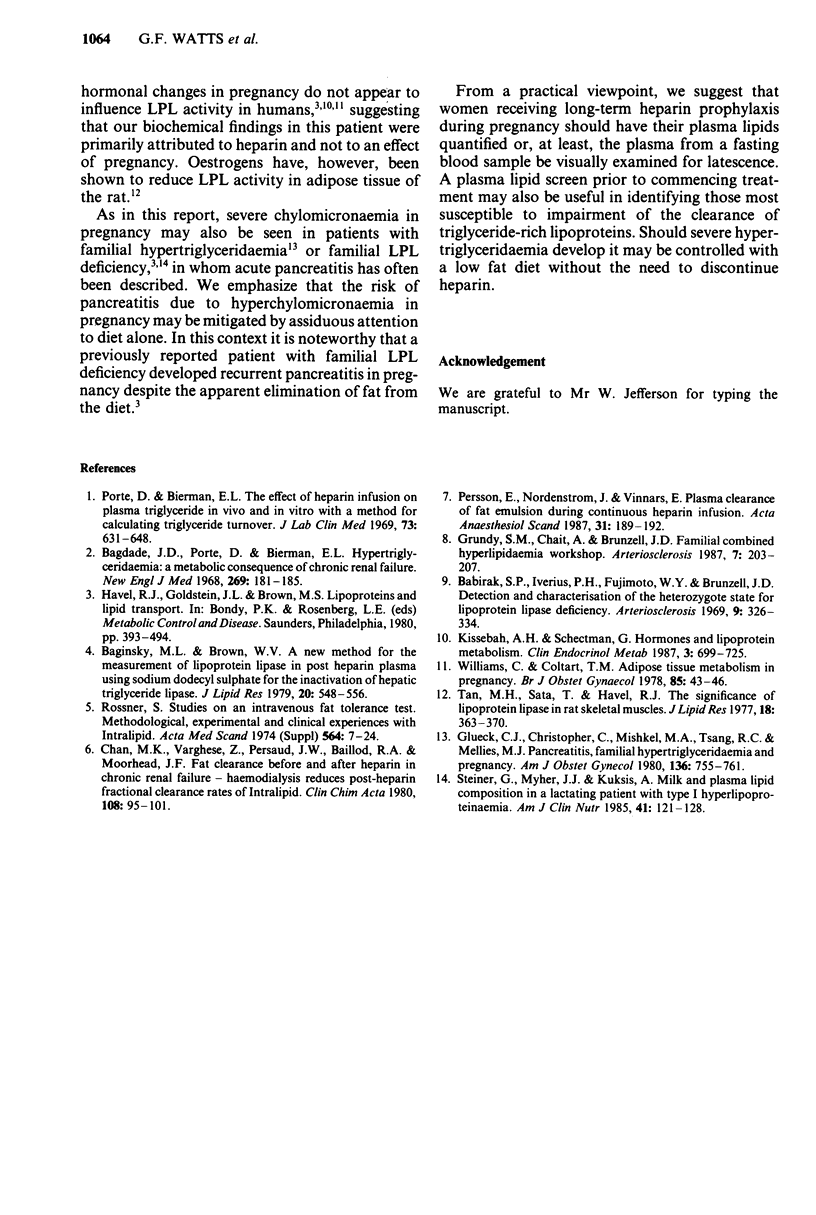Abstract
A case of severe hypertriglyceridaemia presenting in the third trimester of pregnancy in a woman on long-term heparin prophylaxis is described. The hypertriglyceridaemia was attributed to impaired clearance of triglyceride-rich lipoprotein particles secondary to heparin-induced reduction in the activity of the lipolytic enzyme, lipoprotein lipase.
Full text
PDF


Selected References
These references are in PubMed. This may not be the complete list of references from this article.
- Babirak S. P., Iverius P. H., Fujimoto W. Y., Brunzell J. D. Detection and characterization of the heterozygote state for lipoprotein lipase deficiency. Arteriosclerosis. 1989 May-Jun;9(3):326–334. doi: 10.1161/01.atv.9.3.326. [DOI] [PubMed] [Google Scholar]
- Bagdade J. D., Porte D., Jr, Bierman E. L. Hypertriglyceridemia. A metabolic consequence of chronic renal failure. N Engl J Med. 1968 Jul 25;279(4):181–185. doi: 10.1056/NEJM196807252790403. [DOI] [PubMed] [Google Scholar]
- Baginsky M. L., Brown W. V. A new method for the measurement of lipoprotein lipase in postheparin plasma using sodium dodecyl sulfate for the inactivation of hepatic triglyceride lipase. J Lipid Res. 1979 May;20(4):548–556. [PubMed] [Google Scholar]
- Chan M. K., Varghese Z., Persaud J. W., Baillod R. A., Moorhead J. F. Fat clearance before and after heparin in chronic renal failure--haemodialysis reduces post-heparin fractional clearance rates of intralipid. Clin Chim Acta. 1980 Nov 20;108(1):95–101. doi: 10.1016/0009-8981(80)90297-1. [DOI] [PubMed] [Google Scholar]
- Glueck C. J., Christopher C., Mishkel M. A., Tsang R. C., Mellies M. J. Pancreatitis, familial hypertriglyceridemia, and pregnancy. Am J Obstet Gynecol. 1980 Mar 15;136(6):755–761. doi: 10.1016/0002-9378(80)90452-4. [DOI] [PubMed] [Google Scholar]
- Kissebah A. H., Schectman G. Hormones and lipoprotein metabolism. Baillieres Clin Endocrinol Metab. 1987 Aug;1(3):699–725. doi: 10.1016/s0950-351x(87)80029-0. [DOI] [PubMed] [Google Scholar]
- Persson E., Nordenström J., Vinnars E. Plasma clearance of fat emulsion during continuous heparin infusion. Acta Anaesthesiol Scand. 1987 Apr;31(3):189–192. doi: 10.1111/j.1399-6576.1987.tb02547.x. [DOI] [PubMed] [Google Scholar]
- Porte D., Jr, Bierman E. L. The effect of heparin infusion on plasma triglyceride in vivo and in vitro with a method for calculating triglyceride turnover. J Lab Clin Med. 1969 Apr;73(4):631–648. [PubMed] [Google Scholar]
- Steiner G., Myher J. J., Kuksis A. Milk and plasma lipid composition in a lactating patient with type I hyperlipoproteinemia. Am J Clin Nutr. 1985 Jan;41(1):121–128. doi: 10.1093/ajcn/41.1.121. [DOI] [PubMed] [Google Scholar]
- Tan M. H., Sata T., Havel R. J. The significance of lipoprotein lipase in rat skeletal muscles. J Lipid Res. 1977 May;18(3):363–370. [PubMed] [Google Scholar]
- Williams C., Coltart T. M. Adipose tissue metabolism in pregnancy: the lipolytic effect of human placental lactogen. Br J Obstet Gynaecol. 1978 Jan;85(1):43–46. doi: 10.1111/j.1471-0528.1978.tb15824.x. [DOI] [PubMed] [Google Scholar]


